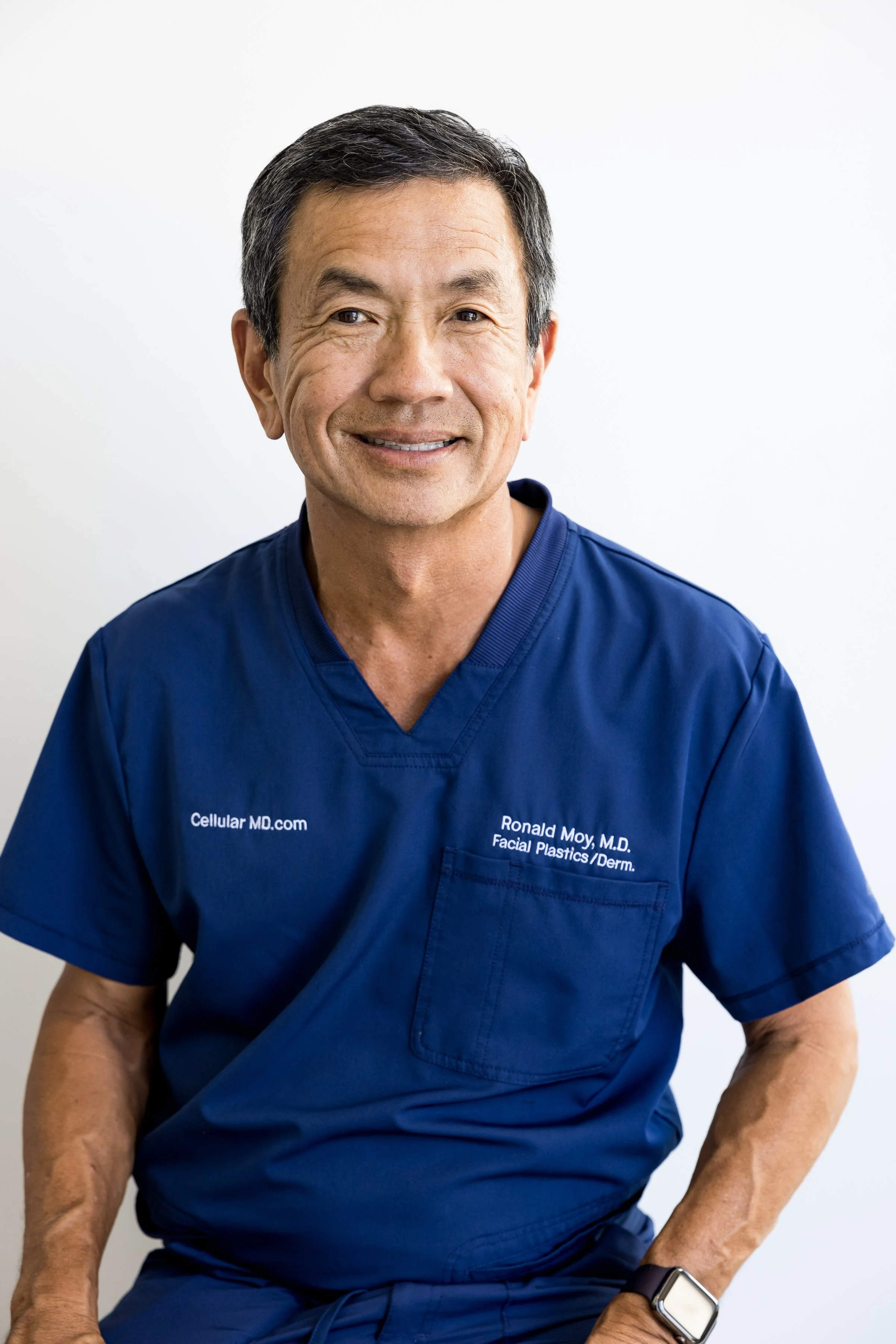Making an Informed Choice: Understanding the Pros & Cons of Cosmetic Surgery
As a cosmetic facial plastic surgeon, I have had the privilege of witnessing remarkable transformations. In recent years, there has been a significant surge in the popularity of cosmetic surgery, with more and more people seeking to achieve their aesthetic goals. While the allure of these procedures is undeniable, it is equally crucial to recognize that every decision to undergo cosmetic surgery comes with a unique set of considerations. Understanding both the positive and negative aspects of cosmetic surgery is paramount before embarking on this transformative journey. In this ever-evolving field, my commitment is to provide not only the expertise but also the guidance necessary to ensure that each patient makes an informed and confident decision about their aesthetic aspirations.
The Appeal of Cosmetic Surgery
There’s no question that cosmetic surgery has evolved from a niche field into a widespread phenomenon, and its appeal has grown exponentially over the years. Society's perception of cosmetic surgery has shifted, and it is no longer solely associated with superficiality or vanity. Instead, it has become a means of self-expression and empowerment.
We live in an era where personal choice in body modification is celebrated, as it allows individuals to take control of their appearance in ways that align with their self-image and confidence. It's no longer just about conforming to societal standards; it's about enhancing one's own unique beauty. This transformation reflects a broader societal shift toward embracing individuality and celebrating diversity, and as a cosmetic facial plastic surgeon, I am privileged to be a part of this journey, helping patients make choices that empower them to look and feel their best, on their own terms.
Pros of Cosmetic Surgery
1. Enhanced Physical Appearance
Cosmetic surgery offers a remarkable array of benefits, primarily centered around the enhancement of one's physical appearance and the achievement of a desired look. It provides individuals with the opportunity to address aspects of their appearance that may have caused dissatisfaction or self-consciousness. By fine-tuning facial features or rejuvenating the body, cosmetic surgery can help individuals align their external appearance with their internal self-image. The positive transformation that occurs can be truly life-changing, leading to a significant boost in self-esteem and confidence. When individuals feel more comfortable and content in their own skin, it radiates in their interactions and overall quality of life. As a cosmetic facial plastic surgeon, it is incredibly rewarding to witness the positive impact that these procedures can have on my patients, not only in terms of their physical appearance but also in the way they carry themselves with newfound confidence and self-assuredness.
2. Corrective Benefits
It's important to emphasize the corrective benefits of surgery that extend beyond aesthetics alone. Many procedures serve as powerful tools for addressing deformities or issues resulting from accidents, congenital conditions, or medical treatments. For instance, rhinoplasty not only enhances the appearance of the nose but can also correct breathing problems caused by structural issues within the nasal passages. Similarly, breast reconstruction procedures provide a sense of wholeness and empowerment to those who have undergone mastectomy due to breast cancer. These interventions go far beyond the realm of vanity; they restore both physical function and emotional well-being. I take immense pride in utilizing my skills to bring about these corrective transformations, helping patients regain not only their physical form but also their sense of normalcy and self-confidence after facing life-altering challenges.
3. Psychological Benefits
The psychological benefits of cosmetic surgery are often underestimated. Beyond physical changes, these procedures can have a profound impact on a patient's mental well-being. Enhanced self-esteem and improved self-confidence are among the most significant psychological benefits. When individuals feel better about their appearance, they often experience a positive ripple effect in various aspects of their lives. Overcoming long-standing insecurities and body image issues can be transformative, leading to improved mental health and a more fulfilling life overall. Witnessing these transformations underscores the intricate connection between physical and mental health and highlights the importance of addressing both aspects to achieve a holistic sense of well-being.
4. Long-lasting and Sometimes Immediate Results
Another aspect of cosmetic surgery is the potential for long-lasting, and in some cases, immediate results. Many surgical interventions, such as facelifts or breast augmentation, offer outcomes that can last for years, even a lifetime, depending on the procedure and individual factors. These transformations often provide patients with a sense of satisfaction and confidence that extends far into the future.
On the other hand, non-surgical treatments like dermal fillers and Botox can yield immediate improvements. The instant rejuvenation and subtle enhancements they provide can be incredibly gratifying for patients seeking quick solutions to fine lines, wrinkles, or volume loss. I find it rewarding to offer my patients a spectrum of options, each tailored to their unique needs and goals, whether they’re seeking long-lasting changes or immediate improvements. This diversity of approaches allows me to cater to a wide range of desires and expectations, ultimately enhancing the lives of those I work with.
Cons of Cosmetic Surgery
1. The Risks of Surgery
It is essential to acknowledge that, like all surgeries, cosmetic procedures come with inherent risks and potential drawbacks. These risks include the possibility of infections, scarring, or complications, which can vary depending on the type and complexity of the surgery. Anesthesia, a critical component of many cosmetic procedures, also carries risks, including allergic reactions or adverse effects, though they are relatively rare. Furthermore, there is the potential for dissatisfaction with the results, as cosmetic surgery outcomes can sometimes differ from a patient's expectations. Surgeons should thoroughly discuss these risks and potential complications with their patients so that they can make an informed decision, weighing the benefits against the potential drawbacks, in order to ensure their safety and satisfaction throughout the process.
2. Financial Costs
For some, cosmetic surgeries can come with a significant financial burden. One of the foremost considerations is that many cosmetic procedures are not covered by insurance, as they are often deemed elective or aesthetic in nature. This means that patients must bear the full cost of the surgery themselves. Moreover, the financial commitment extends beyond the initial procedure, as there are additional costs associated with post-surgery care, such as medications, follow-up appointments, and, in some cases, necessary touch-up procedures to achieve the desired results. It's essential for individuals contemplating cosmetic surgery to factor in these financial considerations when making their decision, ensuring that they are prepared for the total cost involved in achieving their aesthetic goals. Financial planning and discussions with the surgeon about the full scope of expenses are necessary steps in the process of undergoing cosmetic surgery.
3. Unrealistic Expectations
Having unrealistic expectations can be a significant challenge. Some individuals may expect flawless, perfect results that do not align with the limitations of the human body or the procedure's potential. When these high expectations are not met, disappointment can ensue. Moreover, there is a potential danger of becoming obsessed with constant modifications to one's appearance. Continual pursuit of perfection through cosmetic surgery can lead to a cycle of discontent and perpetuate unrealistic ideals of beauty. It’s important for both patients and surgeons to engage in open and honest discussions about what can realistically be achieved through surgery and to encourage a healthy approach to body image and self-acceptance. Cosmetic surgery should aim to enhance an individual's natural beauty rather than striving for an unattainable ideal and managing expectations ensures a positive and emotionally healthy outcome.
4. Recovery Time
Many surgeries, whether surgical or non-surgical, necessitate a period of downtime that can significantly impact daily life, work commitments, and social activities. Post-operative recovery varies depending on the procedure, but it often involves dealing with potential pain, discomfort, and swelling. Patients must be prepared for the prospect of extended healing periods, which can range from days to several weeks or even months, depending on the complexity of the surgery. This downtime can be emotionally and physically challenging, requiring patience and a support system to help navigate the recovery process. It's essential for individuals considering cosmetic surgery to plan accordingly, allowing themselves the necessary time to heal and recuperate fully to ensure the best possible outcomes and minimize any disruptions to their daily routines.
5. Possibility of Unsatisfactory Results
Not all procedures guarantee a satisfactory result. While skilled surgeons strive for excellence, factors like individual healing responses and the inherent unpredictability of surgical outcomes can sometimes lead to results that fall short of expectations. In some cases, patients may require revision surgeries to address imperfections, refine results, or make necessary adjustments. These revision procedures, while available, can entail additional costs, prolonged recovery, and the emotional challenge of having to go through the process again. Thus, it is crucial for individuals considering cosmetic surgery to be well-informed about the potential for unsatisfactory results and to maintain a realistic outlook throughout their journey, understanding that achieving perfection may require patience and persistence.
Making an Informed Decision
Making an informed decision begins with thorough research, not only about the specific procedure but also about the potential risks and benefits. Consultations with board-certified and reputable surgeons are essential to discuss personal goals, expectations, and the realistic outcomes of the procedure. Equally important is understanding one's motivations for seeking cosmetic surgery, ensuring that the decision is driven by personal desires rather than external pressures or unrealistic ideals. Recognize that not all individuals are suitable candidates for every procedure, and a responsible surgeon will advise against surgery when it's not in the patient's best interest. Ultimately, the decision to proceed with cosmetic surgery should be made with careful consideration, guided by expert advice, and aligned with the individual's physical and emotional well-being.
The decision to undergo cosmetic surgery is a deeply personal one, shaped by individual desires, circumstances, and aspirations. Cosmetic surgery has the power to enhance physical appearance, boost self-esteem, and provide a renewed sense of confidence. However, it is not without its risks, financial costs, and the potential for unrealistic expectations. By approaching the decision with mindfulness and a commitment to holistic well-being, individuals can navigate the world of cosmetic surgery with greater confidence, ultimately achieving the transformative results they desire while safeguarding their physical and emotional health.
To learn more, visit https://www.moymd.com/contact to book a one-on-one consultation with a board-certified cosmetic facial plastic surgeon.

